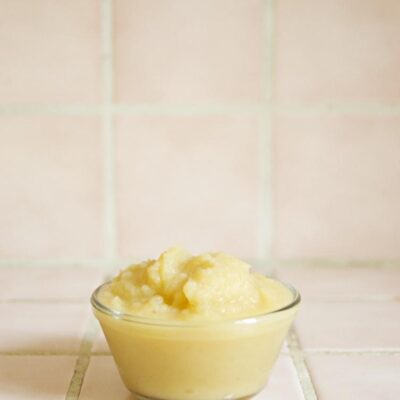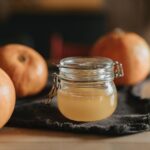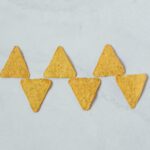Yes, dogs can safely eat mashed potatoes in moderation. Furthermore, your mash shouldn’t contain any butter and seasonings such as salt, as this can lead to obesity and heart issues in dogs. Other than that, a bowl of boiled, mashed potatoes by themselves contain folate, niacin, magnesium, potassium, vitamin B6, and vitamin C, which is great for your dog’s health.

Safe: This food is generally considered safe by the veterinary community. Dogs can eat this food sometimes or in small amounts but contains little to no nutritional value.
| Food Safety | Safe to eat in moderation |
|---|---|
| Nutritional Value | Vitamin C and B6, potassium, magnesium, niacin, folate, phosphorous |
| Potential Risks | Obesity due to butter, stomach irritation from add-ons such as spices, cream, and garlic |
How Much Mashed Potatoes are Safe for Dogs?
A dog’s daily diet should include potatoes every now and then. They have a high carbohydrate and starch content and are simple to digest. For healthy dogs, it is preferable to view potatoes as a treat rather than something you should feed them daily.
Furthermore, dogs with diabetes should completely avoid mashed potatoes as they can cause an increase in blood sugar levels. Typically, high-starchy food such as mashed potatoes should only make up 10-20 percent of your dog’s daily diet.
What Happens if Your Dog Eats Too Many Mashed Potatoes?
Just like other human foods, feeding too many mashed potatoes to your dog can make it sick. In fact, any food items, if overfed to your dog, can lead to diarrhea and vomiting.
Additionally, mashed potatoes can contain a lot of salt, butter, oil, and dairy, which can further upset your dog’s stomach. However, simple mash shouldn’t be harmful if your dog eats it in moderation.
How to Prepare Mashed Potatoes for Dogs Safely
When making your own mashed potatoes, it’s best to make a separate batch for your dog because the delectable flavors and extra fats can be harmful. Peel the potatoes completely before boiling them in unsalted water to make mashed potatoes for dogs. Only a splash of milk or a tablespoon of plain yogurt should be added when it’s time to mash the potatoes.
Furthermore, don’t forget that certain dogs cannot tolerate lactose. Of course, adding a little milk will be fine, but it’s best to stay away if your dog is allergic to dairy products. Lastly, add-ons typically added to mashed potatoes, such as onions, chives, and garlic, can be poisonous and cause severe health issues in dogs.
Common Mashed Potato Ingredients
- Potatoes-It is perfectly fine to feed your dog boiled or baked potatoes. However, ensure that you don’t add salt or spices, as this can lead to stomach issues in dogs.
- Milk-Milk is a nutrient-packed drink that can be excellent for dogs; however, if your dog is lactose intolerant, it’s best to avoid it completely.
- Butter/oil-Both oil and butter can introduce extra fats into your dog’s diet, which can cause obesity and other health problems in the long term.
Frequently Asked Questions
-
Dogs can eat frozen mashed potatoes if you cook them properly. Plus, it would be best not to add spices, milk, or butter to the frozen mash mix.
-
Like frozen mash, instant mash potatoes also come prepackaged and require cooking. However, it’s better to avoid feeding your dog packaged mashed potatoes as they might contain salt, butter, and dairy.
-
Plain mashed potatoes are completely fine on their own. However, you introduce extra fat by adding butter to it. This can cause your dog to gain weight eventually.







